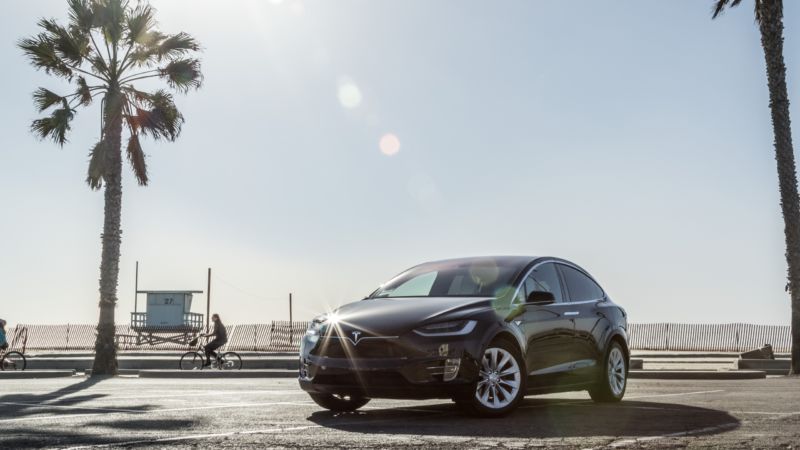Tesla has three of the 11 most popular cars shared on Turo

In honor of Earth Day, the folks at Turo got in touch to tell me about the rising popularity of electric vehicles on the car sharing platform. For the uninitiated, Turo is a site that lets people rent out their vehicles when they’re not using them—and yes, it includes insurance in case the renter does something they’re not supposed to do. And increasingly, the vehicles that people are looking for, and the vehicles they’re sharing, are electric. In fact, the supply of EVs on Turo grew by 1.5 times the rate of hybrids or conventionally powered vehicles in 2017 and 1.6 times in 2018. The growth in demand is lagging a little, but demand for EVs still grew at 1.4 times the rate of hybrids and conventionally powered vehicles in 2017 and 1.5 times in 2018.
There are no prizes for guessing that much of this growth was from people adding Teslas to the platform and people correspondingly looking to rent Teslas. In 2014, there were just 67 Teslas for rent on Turo. At the time of writing, the company tells me that there are now 6,000 Teslas on the site.

As we discovered in January, the most popular car to rent on Turo last year was the Jeep Wrangler, and for 2018 none of the top five most rented cars were battery EVs. But the Model S was in sixth place back then, with the Model X in tenth and the new Model 3 just one spot behind. “It’s fascinating to see how popular EVs have become over the last year,” explained Andre Haddad, Turo’s CEO. “The Model 3 only showed up last spring, then started to take off in the summer as more people got their cars. And in Q4 2018, the Model 3 had overtaken the Model X.” (Haddad also owns a Model S, Model X, and Model 3, all of which he rents out on the platform.)
Haddad draws a few insights from the increasing popularity of BEVs on Turo. “Analytically we realize that EVs continue to be more expensive to acquire than an internal combustion engined vehicle, so the economic reality for sharing is more valid. Secondly, the cost of running an EV is a lot lower so you can earn more per mile as an EV host,” he told Ars. (A host is what Turo calls people who rent out their vehicles on the site.) Anecdotally, I can think of at least one friend who just bought a Model 3 and plans to offset the purchase in this way.
Haddad thinks there are a couple of factors at play with regards to people using Turo to rent EVs. “There are people who already drive EVs at home and are traveling to a location where they need a car and can get an EV more easily on Turo than they can anywhere else. We’re uniquely positioned compared to the conventional rental car guys in that regard,” he said. “The second segment are people considering buying an EV and making the switch, and who use Turo to have an extended test drive over a weekend or week. They can try it on their commute or frequent use cases to see if fits with their lifestyle. I’d estimate that half my guests are in category one, the other half are category two,” he said.
https://arstechnica.com/?p=1494461